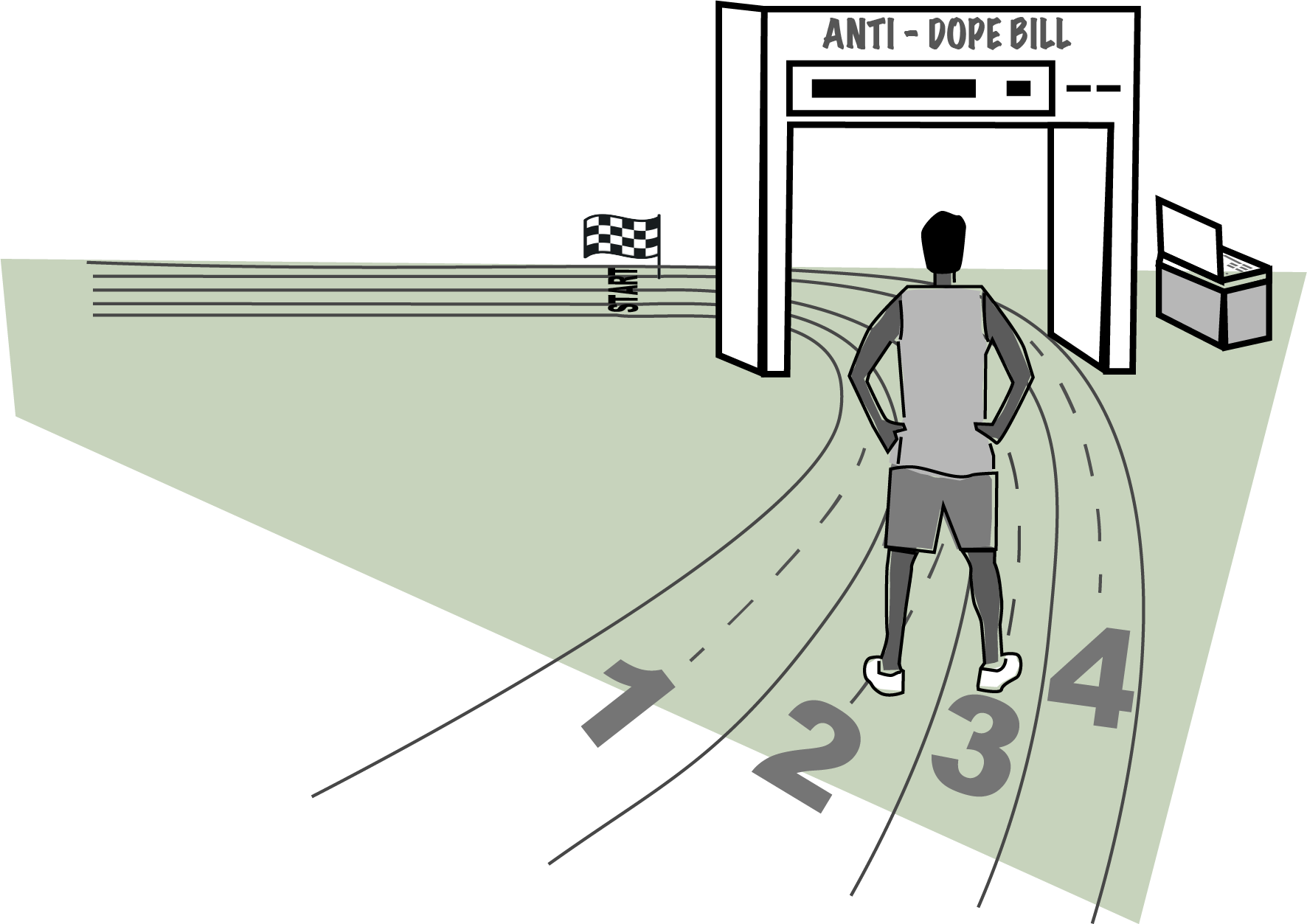Weed(ing) Out

The National Anti- Doping Bill 2021 was introduced in the Parliament in December 2021. It seeks to enact a concise legislation for regulating anti-doping activities in sports and give effect to the United Nations Educational, Scientific and Cultural Organisation International Convention against doping in sport. India is a signatory to the convention against doping in sport.
Doping
It is a colloquial term used for use of prohibited medicines, drugs or treatment especially by sportspersons with the intention to enhance their performance in competitive and prestigious sporting events.
With development in modern medicine, several performance enhancing drugs are available – steroids, stimulants, hormones and drugs to increase oxygen in blood. They increase stamina, endurance to intense activity and even contain substances mask the presence of other drugs in the body.
Use of such drugs by some sports persons puts them in an unduly advantageous position in comparison to those who do not use such artificially performance enhancing drugs. Several leading sports persons – trach & field athletes, cyclists and base-ball teams were (in)famously caught doping. Most of them face bans from participating in their respective sporting events.
India’s stand
India was one of the Members of Foundation Board of the World Anti-Doping Agency from 1999 to 2002. In 2005, India became a signatory to the United Nations Educational, Scientific and Cultural Organisation International Convention against doping in sport. Therefore, it seeks to enact a legislation in India on the same lines as the international convention.
A look at the highlights of the Bill:
1. Prohibition
The Bill prohibits athletes, their support personnel and other persons from engaging in doping in sport. The athlete’s support personnel mean any coach, trainer, manager, agent, team staff, official, medical or paramedical personnel or such other person working with or treating or assisting an athlete who is participating in, or preparing for, a competition or event at the national level or international level or to which this Act applies.
The above-mentioned persons have to ensure that the athlete shall not (i) possess, (ii) use (iii) attempt to use prohibited substances (iv) refuse to provide samples when required (v) aid or cover up such use of prohibited substances.
2. Exception
If an athlete has any medical condition that requires him or her to use a prohibited substance, then he or she shall apply to the National Anti-doping agency for exemption on grounds of therapeutic use.
3. National Board for Anti-doping
- A national Board for Anti-doping shall be constituted to recommend to the Central government rules and regulations on anti-doping and the international stand with respect to the same. The Board of the agency shall have power to decide on the number of officers, their remuneration and roles / responsibilities.
- The Board will have the power to establish disciplinary panels and appeal panels. While the disciplinary panels will determine the consequence of violating the rules herein, the appeal panel will give athletes the opportunity of being heard before deciding. Appeals against the order by the appeal panel can be made to the Arbitration court for sports.
4. National Anti-doping Agency
- The Bill seeks to completely do away with the existing National Anti-doping agency which was established as a Society and institute the National Anti-doping agency as a body corporate.
- The officer heading the agency shall be appointed by the Central government in the rank of a Director General.
- The Agency shall ensure the implementation of the provisions of this Act – anti doping rules and policies, promoting, co-ordinating and monitoring the anti-doping policies to ensure Indian sport is dope fee.
- The Agency has the power to enter into premises, search and seize any content which it believes to contain evidence of violation of anti-doping rules.
- The powers of the Agency include collection of samples, manage test results and conduct results management at the national level.
- The Agency shall have the power to collect personal data of athletes subject to following procedure regarding such collection of data. Such power includes public disclosure of the details of athlete found guilty of doping.
5. National Dope Testing Laboratories
- The national dope testing laboratories already established prior to the enactment of this Bill shall be deemed to be the principal dope testing laboratory.
- The Central government shall recognize one or more laboratories within India to collect, test and report on samples.
- Such laboratories shall also carry-on research in anti- doping science and related fields.
The National Anti-Doping Bill, introduced in December 2021 is pending enactment. The Parliamentary Standing Committee sought recommendations from stake holders in February 2022. The Bill is intended to provide a statutory / regulatory framework for anti-doping in sports.

